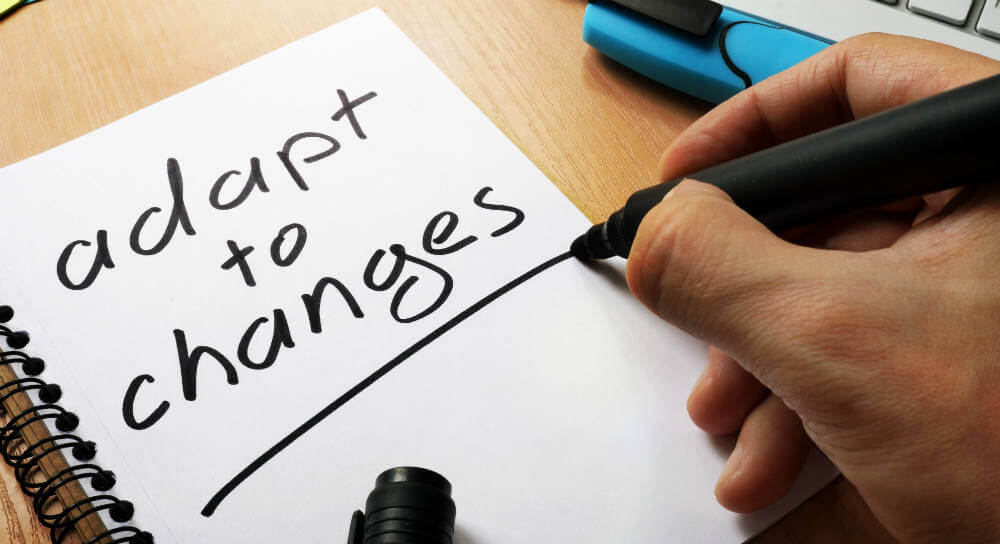Every sales business is looking for that perfect salesperson. You know that dynamic, charismatic individual who drives sales wherever they go? These salespeople are like gold dust, finding them and attracting them to your opportunity isn’t always easy.
You need to make sure that the salesperson you hire is the best candidate possible to drive profits for your business. But how can you ensure this?
The interview process is the most important part of talent recruitment, as it allows you to get to know your candidates on a personal level. You should know how to get as much as possible out of this process. We’ve provided some sales interview tips, as well as a few questions you can ask.
To get the most out of your interview process, you need to know exactly what to ask. Here are some example interview questions you should consider presenting to your senior sales candidates.
One of the most important features of a top salesperson is their ability to form and develop relationships with clients. Everybody has a unique method of relationship building. Ask your candidate exactly what process they employ when building relationships with clients.
Are they more casual or professional? How persistent are they? Do they make small talk or get straight to the point? These are all questions you should try and find answers to. This will give you an insight or a candidates relationships at work, and how they’ll fit in with your workplace engagement strategy.
Every salesperson should be proud of their greatest sales achievement. Encourage your candidate to boast a little about their most successful sales deal. This could be the most amount of money they brought in, or winning over their toughest client.
Whatever they think was the most impressive sales success, they should be telling you about it. This is their opportunity to ‘wow’ you, and tell you why you need them on your team.
So they’ve got your attention with their greatest sales success. Now it’s time for them to sell themselves to you. They should explain to you to exact process they employed to land this sale and why they chose to employ it.
Get as much detail as possible out of this, as it’ll give you a lot of insight into their workings as a salesperson and their ability to close large deals.
Quality salespeople will be able to construct a story that really grabs your attention. You’re looking for more than just ‘then I did X because Y, which lead to Z’. You want your candidate to absorb you into their success story, and bring you on the journey with them. If they can sell this story to you, that’s a great sign.

When the unexpected happens in the world of sales, it’s often sink or swim. And top salespeople are strong swimmers. Your ideal salesperson should be able to adapt to new circumstances naturally, identify barriers to communication and solve problems. This is especially important for candidates who have primary experience in one type of role or business. You need to make sure your candidate hasn’t become institutionalised.
Though the endgame is always making a sale, every salesperson has a different way of achieving it. Ask your candidates what their perfect sales process is from beginning to end. Why do they think it’s the perfect process?
Have they ever achieved this, and how? Ideally salespeople should always be striving to improve, but they should also be realistic. They should be able to set themselves targets that are ambitious but attainable. Being able to do this tells you that they’re driven to succeed and improve, to be constantly raising their own bar.
Let’s face it, losing leads happens. Not every sale can be successful even if you’re the best salesperson in the world. What’s important is your ability as a salesperson to salvage what you can from important leads when it looks like they’re going to be lost.
Ask your candidates to give examples of times that they’ve salvaged a sale that looked to be gone. How did they know the sale was going to be lost? How did they identify this and what techniques did they employ to save it?
Again this is an opportunity for the candidate to impress you and take you on their journey. The ability to salvage lost leads is critical and one of the most important features in a salesperson. By asking them about this they can demonstrate their ability both to identify when a lead is going cold and to save it.
On the same topic, top salespeople know when to give up on a lead. Not every sale is going to be a success, and not every sale can be saved. Great salespeople are able to recognise this and identify the point at which chasing a sale becomes a waste of time and resources.
Ask your candidates at which point they think a lead should stop being chased. Do they have examples of doing this? Opinions on this vary greatly, some salespeople believe you should never give up on a potential sales.
However, others are much quicker to cut their losses and move on quickly when things look to be going cold. You need a candidate whose opinion on this aligns with that of your sales team.
After all, if you’re team is persistent and finds value in every single opportunity, you don’t want to hire someone who’s quick to give up and move on. Strong intuition is vital to success in senior sales roles.

Inquiring about a candidate’s weaknesses is one of the more common sales interview questions. Self-awareness is a key feature of strong salespeople. This includes the awareness of how you’re behaving when interacting with clients. It also includes awareness of your own strengths and weaknesses.
Everybody has weaknesses and that’s unavoidable. However, true professionals put in the hard work to improve on these weaknesses and strengthen their abilities every day. Knowing weaknesses will give you insight into what staff development training they could be part of.
Get your candidates to tell you what they think their biggest weakness as a salesperson is. Ask them why they think this area is their weakest. It’s important to follow this up by asking how they’re working to improve this weakness and make themselves a better salesperson. Being able to acknowledge weakness is one thing, but not doing anything to fix it shows lack of motivation for self-development.
Perhaps the single most important feature of a top sales candidate is their success rate. Without proven success, you can’t be sure that your candidate is able to win clients and bring in profits.
Every good salesperson understands the importance of tangible figures, and many will put these on their CV.
Ask your candidates to give you some solid figures regarding their sales performance and success rate. Quality salespeople will have this information readily available to you. Being able to provide you with detailed information when asked is a good sign of information retention, organisational skills, and self-awareness. All of these qualities are ideal for a top sales candidate.
Before the interview begins, you should have an idea of what kind of success rate you’ll accept, and what isn’t good enough for your team. This includes having an understanding of your own sales team’s statistics.
This is another reason why including members of the sales team in your interview is beneficial.

Questions have their place in an interview, of course, but don’t neglect to take the chance to actually talk to your candidates. By engaging in a dialogue with them, you can more actually gauge what their communicative abilities are naturally.
This relaxes candidates more and gives them a chance to show off their natural charisma. It also allows you to get a better idea of their character as a person. This will help you determine whether they’re right for your team and business as an individual as well as a salesperson.
It can be useful to break the interview process up into stages. Consider having one interview stage as a discussion, where the aim is to get an idea of the candidate’s personality and what they’re like in conversation. The other stages can be focused on their technical ability as a salesperson.
Don’t just ask questions, have a conversation!
Roleplay exercises are a common feature of many interviews, but for sales interviews they’re vital. Roleplay allows you to see first-hand how a salesperson operates, how they communicate with clients, and what techniques they use.
Even if your candidate has provided concrete statistics and sales figures, these only show you their final results. Roleplaying shows you how the candidate works, allowing you to see how well they fit into your business.
You’re wasting an opportunity by not utilising roleplay exercises in at least one stage of your interview process.
Always try and involve at least one member of the current senior management sales execs in the interview process. For example, having your business’s sales director and sales manager be there to see the candidates for themselves is very beneficial.
This gives them the opportunity to ask your candidates questions that are tailored to your business and opportunity. It allows them to see first-hand how well the candidate will fit into their sales team.

Finding the right candidate for your business means finding a salesperson whose mentality aligns with your business goals and your sales team. Sometimes interviews alone don’t give you enough insight into the inner psychology of your candidates. This is where psychometric profiling is of use.
Psychometric profiling programs can identify what type of worker your candidate is, how they work best, and what type of people they work best with. This will help you determine where they’re a good fit for your team psychologically. The tests also give insight into how you might want to manage the candidate to produce the best results.
However psychometric profiling should be used as a guideline in combination with personal judgement. It isn’t to be solely relied on.
At Executive Headhunters as part of our behavioural and cultural profiling service we provide psychometric profiling for candidates and businesses in order to provide our clients with the most tailored service possible.
These are just a few sales interview tips to consider when planning to interview sales candidates.

You’ll find all our latest views from our monthly newsletter, The Executive Brief, as well as White Papers on key topics and current market issues to help you address some of the strategic challenges you face.
Read our latest blogs and market insights.